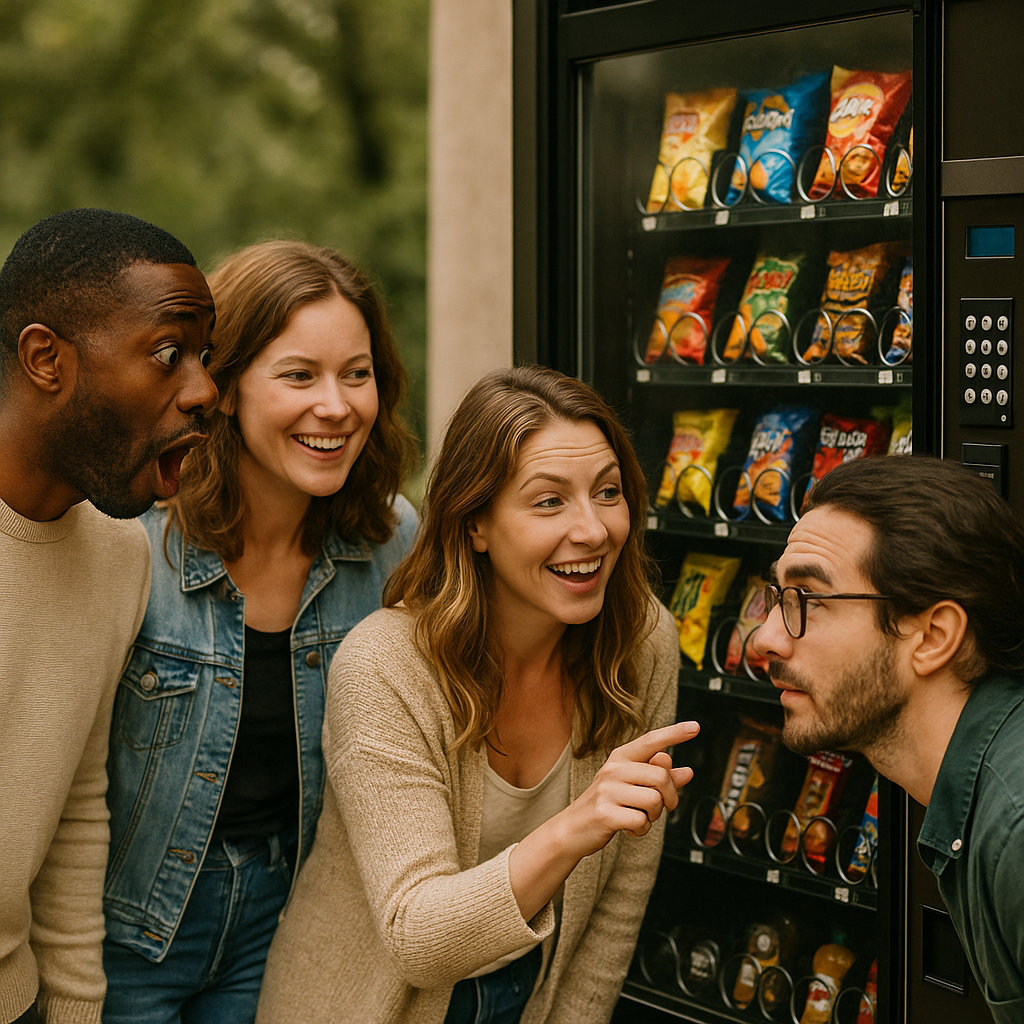Dr. Cornelius Featherbottom
Senior Pigeon Economics Analyst 🕊️

Every great civilization has struggled with the same conundrum: what is the limit of pigeon intelligence? While we often credit these winged city dwellers with impeccable GPS systems, we rarely discuss their glaring deficiency—an inability to use vending machines. This gap in avian knowledge has left researchers, philosophers, and at least one very disappointed bird enthusiast in Toledo scratching their heads for decades.
The primary obstacle, of course, is the absence of opposable thumbs. While pigeons can peck aggressively at buttons, their lack of grip prevents them from inserting coins or properly swiping a card. One particularly ambitious pigeon in 1997 reportedly attempted to use a library card instead of cash, which only resulted in both confusion and a minor fire hazard.
Researchers have since classified pigeons’ interaction with vending machines into three phases:

One might argue, “Why not build pigeon-friendly vending machines?” A fair point, but the economics are tricky. For starters, pigeons do not respect currency exchange rates. When surveyed, 83% of pigeons preferred to pay in breadcrumbs, while the rest attempted to barter with shiny objects. Unfortunately, the vending machine industry has yet to accept bottle caps as legal tender.
Snack design also poses an issue. Most vending machines are not equipped to handle bird-sized snack packs of millet, sunflower seeds, or the mysterious “urban popcorn” pigeons seem to find near bus stops. Without standardized packaging, supply chains collapse almost immediately.
To better understand the challenges, we consulted Dr. Horatio Quackenbush, an ornithological statistician who has spent 14 years attempting to teach pigeons basic arithmetic using sunflower seeds.
“The data is wildly inconsistent,” Dr. Quackenbush explained, furiously flipping through a binder full of grainy pigeon photos. “One pigeon appears capable of recognizing the number seven, but only on Tuesdays. Another insists that all snack spirals represent infinity. The problem isn’t intelligence—it’s their stubborn refusal to adhere to the peer review process.”
His findings suggest that while pigeons may flirt with vending machine literacy, the inconsistencies in their responses (and their tendency to eat the research notes) make drawing reliable conclusions nearly impossible.
Beyond mechanics and economics, there is also the matter of culture. Pigeons have never fully embraced the idea of delayed gratification. While humans might wait 30 seconds for a bag of chips to spiral down, pigeons expect instant results. When surveyed (again, using interpretive dance and seed placement), pigeons consistently indicated that any delay longer than three seconds was unacceptable.
This impatience has led to the infamous “Pigeon Riots of 2003” in central Berlin, where a flock of over 400 pigeons repeatedly dive-bombed a vending machine until an unsuspecting passerby bought three Twix bars out of pure fear.
In the end, the question of pigeons and vending machines isn’t about intelligence—it’s about compatibility. Until avian-friendly vending technology catches up, pigeons will remain floor-crumb specialists, forever watching us humans enjoy our bag of chips while they plot their next bread-based economy.
And maybe that’s for the best.
